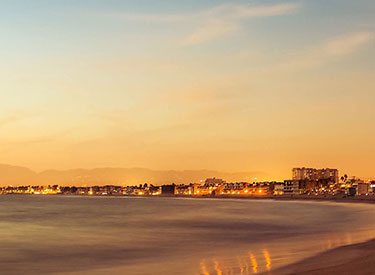


The so-called “silver” market is a major growth area in the travel industry, with today’s senior travellers generally already well-travelled and with clear ideas on where they want to go and what they want to see. If you fall into this category of traveller, here are a few tips on how to make the most of your travel experience.
Timing – senior travellers often have greater flexibility in terms of when they are able to travel. It’s often a good idea to travel mid- season (such as April/May & September/October for Europe). You’ll avoid the busiest crowds, and enjoy lower room rates and airfares, all while the weather is still quite mild. Availability is also often better during these months, so you’re more likely to be able to book exactly what you want.
Transfers and stopovers – having more time available means you can afford to incorporate longer stopovers into your itinerary, especially on long-haul travel, so that you arrive at your destination feeling more rested. It’s also a good idea to allow yourself a couple of days when you first arrive to recover from any residual jetlag and adjust to the local time and temperature. Try to book journeys that allow for the fewest possible transfers and changes. Your personal travel manager can help to ensure your itinerary is as seamless as possible.
Inflight wellbeing – no matter your age, following all the usual tips for inflight wellbeing will make for a far more comfortable journey. Drink plenty of water, go for regular walks up and down the aisle, eat lightly and avoid excessive alcohol. You may also want to invest in a pair of compression support socks/stockings. Ask for pillows and/or blankets if you need them. If you feel unwell during the flight, be sure to inform a flight attendant as they will do their best to make your journey more comfortable.
Medication – if you have any regular medication, take an adequate supply in its original packaging (including enough for a few extra days in case of delays). It can sometimes be tricky to access the same medication in a different country, even without potential language issues. It’s also worthwhile carrying medication for any pre-existing conditions, even if you don’t normally need it. A well-equipped, compact first aid kit is also a valuable item to include in your luggage.
Accommodation – whilst you may have once prided yourself on your ability to eke out your travel funds by skimping on your accommodation budget, you need to consider the practical implications of your accommodation choices. That quirky yet charming boutique hotel in central Rome may seem wonderfully picturesque in the brochure, but this may mean hauling a suitcase up three flights of stairs. If your heart is set on it but you know that there’s no lift, consider asking for a ground floor room.
Discounts – age definitely has its rewards when it comes to travel, so make the most of your status. Be sure to take your Seniors Card with you as it could earn you significant discounts at many attractions and on public transport.
Travel Insurance – this is a must at any age, regardless of how well-travelled you might be. Accidents, illnesses, theft, travel delays: it’s always a good idea to be protected from the unforeseeable incidents that can strike anyone, anywhere.
Talk to your local personal travel manager who will be ablte to find the best travel option to suit your needs.